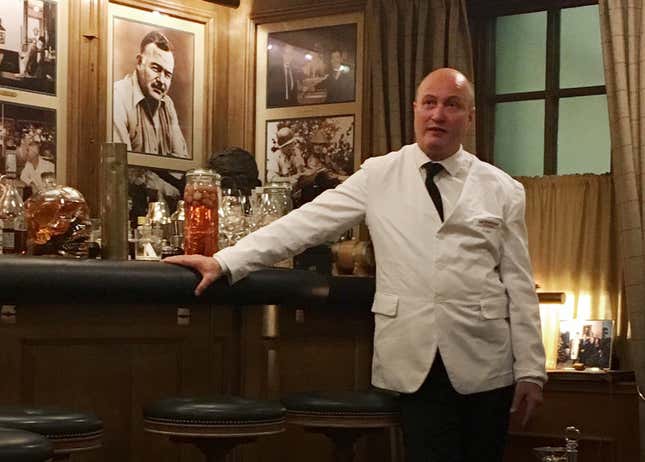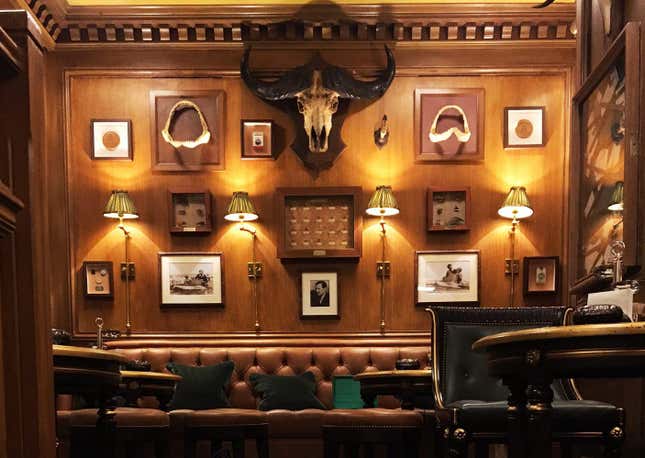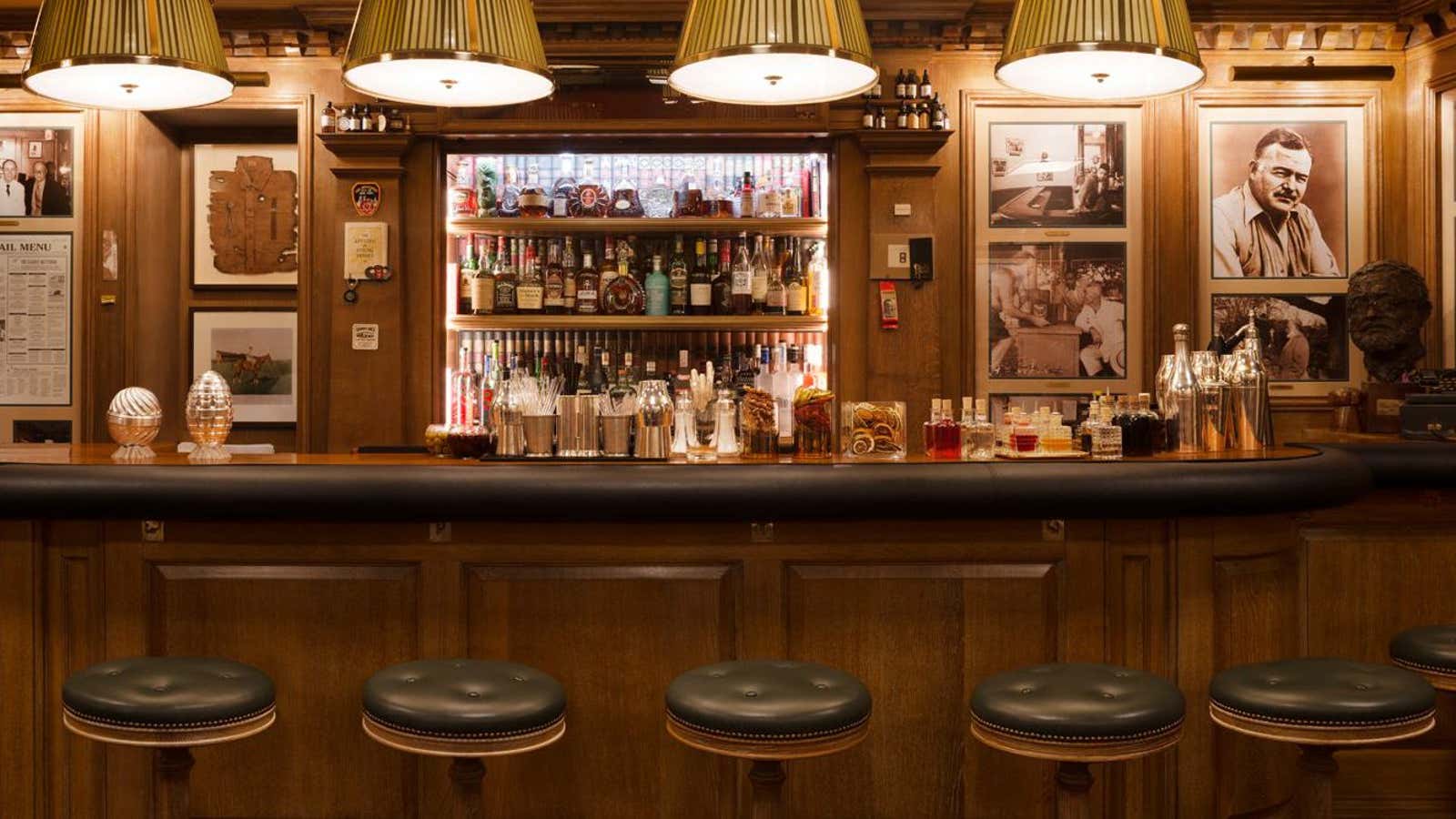People rarely go to a pub because they’re thirsty.
This observation has shaped the career of Colin Field, head bartender of the legendary Bar Hemingway at the Hotel Ritz Paris. The 66-year-old South African, thrice voted best bartender in the world by Forbes, says he can prescribe a drink based on his read of a customer’s body language, clothing, and mood. “They call me the ‘telepathic bartender,'” he says.
At a Dec. 3 cocktail making lesson organized by My Little Paris, Field explained the thought process that goes into the perfect drink for customers who enter his handsome bar-cum-altar. “For whom am I making this cocktail? Why [or what occasion] am I making this cocktail for? Why is that person going to drink this cocktail?” Field notes, rattling off questions like a sleuth. “There’s always a reason for having a cocktail.”

In his 41 years of working in bars and hotels around the world, Field has mapped some common patterns: A person in business attire who looks stressed will go for a quick, dry cocktail like a martini to produce an instant calming effect. Vodka-based drinks are preferred by day drinkers because the smell is virtually undetectable on someone’s breath. A business person, ready to unwind, will go for a long drink like a Tom Collins or a highball.
New drinkers will go for sweet, exotic-sounding cocktails with a lot of juices. A good bartender will also suggest a juice-laden drink for someone who looks like they might need a midday shot of energy—perhaps with champagne or ginger ale. Experienced drinkers opt for simpler cocktails like the Platinum Bullet—a no-nonsense concoction of vodka or gin served in a chilled martini glass with one olive. (Other recipes call for the addition of peppermint schnapps.) “I look at everything when people come into this bar—their watches, their shoes, their suits—everything. It gives me an indication [of what to make for them],” says Field who created the curriculum for a barman’s degree at the Sorbonne University in 2009.

Cocktail names have a huge impact on what a customer chooses, too. Though most people like the taste of whiskey and Coca-Cola, most won’t admit to it or order it in a bar because it sounds pedestrian. A pink drink with grapefruit juice, strawberry liqueur, and vodka called ”Bazooka,” will likely turn off proper ladies. Jocks or “highly-stressed stock exchange types” faced with a “Pink Fairy” are apt to pass. “Basically, you are what you drink,” he says.
What potion could he concoct to remedy our mood post-Brexit, pre-Trump? Field demurs, saying the Ritz has a policy of steering away from naming drinks after political figures. (Quartz’s Shattered Glass and Nasty Woman would never make the menu here.)
What would he make for a hypothetical man who’s just been inaugurated president of the United States? “Obviously, a champagne cocktail,” says Field. And for a hypothetical woman who was positive she was going to get a job, only to have the rug pulled out from under her? Says Field, “I would give her a bottle of scotch.”
